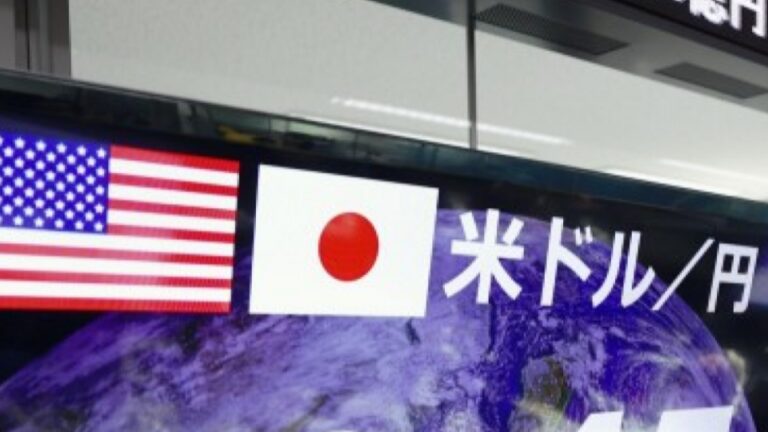Finance Minister Shunichi Suzuki said Thursday that Japan was watching currency developments “with a high sense of crisis” after the yen hit a four-month low against the dollar.
The yen fell to 151.82 yen in the New York market overnight, backed by market expectations that the Bank of Japan would not be in a hurry to raise interest rates even if it ends its negative interest rate policy.
Suzuki told reporters that currency movements should be “stable.”
When the US Federal Reserve and other major central banks begin raising interest rates to curb inflation in 2022, the Bank of Japan remains firmly in a dovish stance, and the interest rate differential between Japan and the US remains wide.

Bank of Japan Governor Kazuo Ueda (Kyodo) speaks at a House of Councilors committee in Tokyo on March 21, 2024.
Japanese authorities are wary of foreign exchange market fluctuations due to their negative impact on the economy. A weaker yen increases import costs for resource-poor Japan, but at the same time it also boosts the profits Japanese exporters earn overseas in yen terms.
Bank of Japan Governor Kazuo Ueda reiterated in the Diet on Thursday that financial conditions would remain “accommodative for the time being.”
Responding to lawmakers who questioned whether the timing of the policy change was appropriate, Ueda said that if interest rates are not raised in a timely manner, there is an increased risk that inflation will overshoot 2%.
“In order to reduce (the upside risk of inflation) we need to choose to raise interest rates rapidly and significantly.Therefore, we took these risks into consideration when making the decision to lift negative interest rates this time.'' added.
The Bank of Japan judged on Tuesday that it was within sight of achieving its 2% inflation target, reversing years of unconventional monetary policy that included a yield cap program to keep borrowing costs extremely low.
Noriatsu Tanji, chief fixed income strategist at Mizuho Securities, said the Bank of Japan's policy guidance remains “ambiguous” and financial markets remain “skeptical” about the outlook for future interest rate hikes.
“The Federal Reserve will start lowering interest rates in the middle of this year, but the Bank of Japan has just entered a new phase of raising interest rates. Given the interest rate differential, the yen's depreciation needs to at least take a pause,” he said. “The currency depreciation (since the Bank of Japan's decision) seems excessive.”
The Fed left its benchmark interest rate unchanged at its policy meeting that ended Wednesday, but is expected to cut rates three times this year.
Related coverage:
Focus: Bank of Japan's policy shift to raise stock prices amid expectations for wage-driven inflation
Dollar exceeds 150 yen as Bank of Japan lifts negative interest rates


